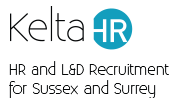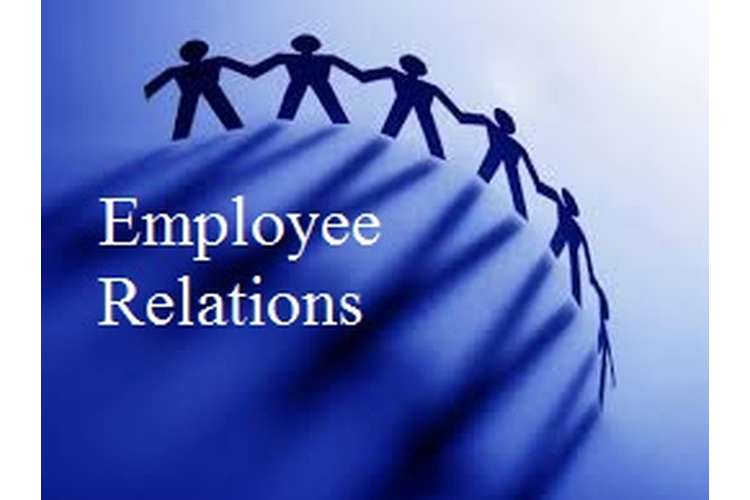Apr 26th 2023
Navigating Employee Relations in the Post-COVID Workplace: An HR Perspective
Navigating Employee Relations in the Post-COVID Workplace: An HR Perspective
The COVID-19 pandemic has changed the way we work, with many organisations and employees shifting to a new way of working. While these changes have been necessary to ensure business continuity, protect employees and adapt to changing employee needs and expectations, in this article we explore whether the post Covid workplace has seen a change in the amount and type of employee relations issues now seen by HR professionals.
According to the latest research from the CIPD, the professional body for HR and people development, over half (53%) of employers agree that the UK is entering a new, more unstable period of employment relations. The findings came from a YouGov survey of 1,075 senior HR professionals in the UK. 42% of respondents cited that they expected employers would face increasing levels of industrial action over the next 12 months (July 22.)
However, many HR professionals do not believe they are seeing an increase in employee relation cases within the workplace. For example, Sally Bendtson, founder of Limelight HR, said she hadn’t seen a ‘perceptible change in time spent on ER issues’ and noted that many organisations she works with face the issues head-on, so have avoided ‘expectations escalating into grudges and grievances’ (April 23.)
With a number of HR professionals citing struggles with managing remotely alongside mental health, performance and EDI issues, we look at the impact these areas could potentially be having on ER cases within the workplace.
Wellbeing – The pandemic has no doubt taken a toll on employee’s mental health and well-being, with many reporting increased levels of anxiety, stress and burnout. A report collated by change activation platform Rungway, show that employee concerns about issues relating to their general wellbeing have risen by a staggering 88% in the last 12 months alone (The State of Inclusivity in the Workplace 2023.)
When employees are experiencing these types of issues, they may become less engaged and less productive, leading to a decline in overall performance. Additionally, employees who are experiencing high levels of stress and burnout may be more likely to experience conflicts with their co-workers or managers. This can lead to a breakdown in communication, reduced collaboration, and an overall negative work environment. They may also be more likely to take sick leave or even resign from their positions.
Dan Phipps, HR Solutions Director at AdviserPlus, has said an increased awareness of wellbeing and mental health, alongside the need for better work-life balance had ‘empowered employees’ (People Management, April 23.) This empowerment could have an impact on whether they raise more ER issues, as employees who have higher expectations of their employer in terms of communication, transparency, and support may be more likely to speak up when they feel that their needs are not being met.
Management of Remote/Hybrid Working – For many organisations, remote and/or hybrid working as has become a permanent part of their workplace strategy. While remote working can no doubt offer many benefits such as increased autonomy and flexibility for employees, it can also present unique employee relations challenges. ONS data show that in February 2022 more than three-quarters (78%) of those who worked from home in some capacity said that being able to work from home gave them an improved work-life balance.
A recent international survey of 3,000 global office workers by Insights Learning & Development has found that over a quarter of UK workers say that sharing ideas, delivering objectives and learning and development has actually become easier since working in a hybrid team. However, over half of UK workers say building relationships has become harder in hybrid teams (51%) and one-third say they find it harder to stay connected to what is going on across their company (33%.) A staggering 47% say they feel less connected to their co-workers than before the pandemic.
Remote working could potentially lead to feelings of isolation and disconnection from co-workers, as well as reduced collaboration and communication. Furthermore, remote working can create new challenges for managers in terms of monitoring employee performance and ensuring that they have the resources and support they need to be successful in their roles. This can lead to issue with accountability and performance management, which can create tensions and conflict.
EDI Issues – Diversity, equality, and inclusion issues can have a significant impact on employee relations cases within the workplace. When employees feel that they are not being treated fairly or equitably due to their race, gender, sexuality, or other personal characteristics, it can lead to feelings of anger, frustration and resentment. These feelings can then manifest in various forms of conflict, including interpersonal conflicts, complaints to HR, or even legal action.
A Work Foundation report on ‘Making hybrid inclusive’ notes the risk that employees could be excluded through remote working from reduced visibility to senior staff and other colleagues, being ‘out of sight and out of mind’ of the rest of the organisation, may result in different rates of progression. This can impact those who already face disadvantages in the workplace: around 36% of managers reported concerns for young workers (aged under 24 years) potentially missing out on workplace opportunities, such as networking opportunities and representing the organisation at external events. Other concerns were for parents, carers, women, ethnic minorities and disabled workers.
However, it could be argued that better EDI awareness and legal protection is enabling minority groups to gain confidence in speaking out against inequality. This could, in turn, give employees more confidence to raise grievances when they feel they are not being treated with equality in the workplace.
With organisations having to continuously adapt and develop their working strategies to meet with employee expectations and needs, it is interesting to reflect on whether these strategies and policies are having an impact on employee relations issues within the workplace. A range of factors including increased stress and burnout, changes in working arrangements and heightened awareness of issues including EDI could be impacting on the likelihood of employees reporting and escalating issues they face. With the workplace likely to continue changing with a sustained emphasis on flexible working and employee well-being, employers need to ensure they create a positive and productive workplace culture that fosters good employee relations.
Back to the lastest news


